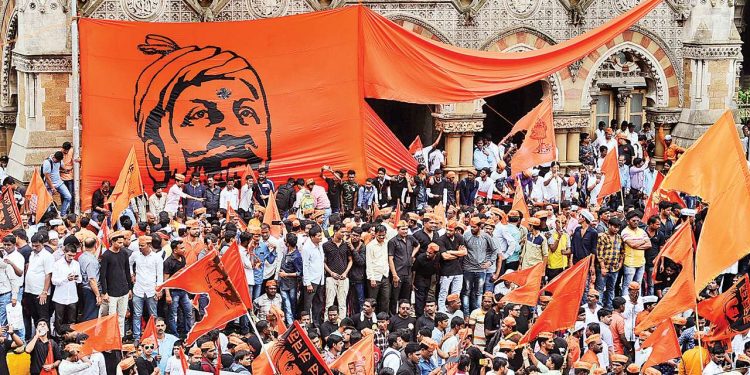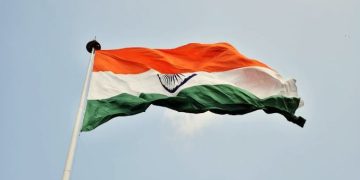SN Misra
There are three seminal supreme court judgements which have stood the test of time viz. Kesavananda Bharati (1973), affirming inviolability of basic structure, SR Bommai (1995) making floor test mandatory for adjudicating majority and Indra Sawhney(1992) putting a cap of 50% on reservation. The 16% reservation for Marathas based on recommendation of Gaikwad Commission had been challenged in the Supreme Court as also the 50% ceiling imposed by the Indra Sawhney case for reservation for SC/ST & OBCs. In a remarkable judgement, the court has struck down reservation for Marathas and has upheld the upper cap of 50% decided by the Indra Sawhney judgement. The court has observed that the cap on reservation was fixed “to achieve principle of equality with an object to strike a balance which cannot be said to be arbitrary and unreasonable. To change the 50% limit is to have a society which is not founded on equality but based on the caste rule.” The court also said that “society changes, people change but that does not mean that something that is good and is proven in maintaining equality should be changed in the name of change alone.”
It would therefore be useful to travel through the Indra Sawhney judgement of 1992 which upheld 26% reservation for OBC over and above 23.5% reservation for SC and ST. The court had observed that while equality before law was provided in Articles 15 to 18, the Directive Principles at Article 38, 39 and Articles 335 and 340 had specifically enjoined upon the state to improve the condition of backward classes and SC/ST.
Article 340 of the Constitution empowers the state to appoint a commission to look into the conditions of backward classes and make suitable recommendations. The Mandal Commission constituted in 1979 had identified eleven criteria to determine socio-economic and educational backwardness. Those communities whose literacy was 25% less than the average literacy of the state and whose value of family assets was less than 25% of the average income of the state were considered backward. The Supreme Court had also observed that the backward class as defined by Article 16(4) is much wider in scope than socially and educationally backward class mentioned in Article 15(4). It had also observed that backward class of citizen cannot be determined by economic criteria alone. Accordingly, it struck down 10% reservation for economically backward section of the society as notified in Office Memorandum of April 25, 1991, as unconstitutional.
It may be recalled that 50% reservation cap was first put in the MR Balaji case (1962). In response to the State of Mysore notification reserving 68% for educationally and socially backward classes and SC & ST, the court had said that the notification was a fraud on constitutional power. It also said that backwardness must be based on social and educational criteria and not on caste alone as caste is relevant to only Hindus but not to Christians, Jains and Muslims in a secular country like India.
One of the consistent view points of the Supreme Court has been that reservation under Article 16(4) is not proportionate reservation but adequate representation. This essentially means that though population of backward classes would be around 80%, the reservation must be limited to a cap of 50%. The court was dismayed to find that the Maratha community had adequate and sufficient representation in public services. Based on the available data the court has observed that the Marathas hold 30% of the jobs in the public sector while they constitute only 16% of the population.
In 2014, the Supreme Court had struck down 10% reservation for the Jat community as they were economically and educationally fairly ahead of other communities. The court has wryly observed “when more people aspire for backwardness instead of forwardness, the country itself stagnates.” The court has rightly observed that 50% cap by Indra Sawhney judgement is to fulfil the objective of equality as engrafted in Article 14 of which Article 15 and 16 are facets.
The present judgement is affirmation of the principle of stare decisis, which means the court stands by decided cases and upholds precedents. The court did not find any merit in the contention that the logic of 50% is fuzzy. For the Supreme Court, certainty and consistency are highly desirable features. It has been seen that the basic structure doctrine despite a divided court has been accepted by all parties irrespective of their political ideologies. Similarly, whenever there has been allegation of horse trading in state elections, the principle of floor test has always been put into effect to reaffirm our faith in democracy and transparency. The present Supreme Court judgement therefore deserves to be complimented for its firmness and fairness to marry equity with affirmative socio-economic justice.
However, there are many troubling tangles to the issue of reservation. The government in 2019 through the 124th Constitutional Amendment has provided 10% reservation to economically weaker sections of the society, on the basis of an annual income ceiling of `8 lakh. The Indra Sawhney judgement had considered such reservation as unconstitutional. This issue therefore, needs to be revisited. Further, in the Nagraj case (2006), the Supreme Court had approved reservation in promotion for SC/ST. In a surprising decision in Ashok Thakur case (2008), the Supreme Court had observed that the creamy layer concept will not apply to SC/ ST. These judgements are presently sub-judice. The National Commission for Backward Classes has suggested that the income ceiling of backward classes should be increased to `15 lakh and that 27% reservation for OBCs should be divided between backward, more backward and extremely backward categories.
Quite clearly the concept of reservation is anti-merit. Caste has been a bane of Indian society and a major fig leaf for electoral politics. The Constitution has super added socio-economic justice to liberty, equality and fraternity. However, equality of opportunity is the greatest craving of all human beings at all points of time. The state must fix other measures like free of cost quality education and skill development as a more effective way to promote socio-economic justice, rather than perpetuate the politics of caste reservation indefinitely.
The writer teaches Constitutional Law. Views are personal.






































